Student Blog
Life Hacks
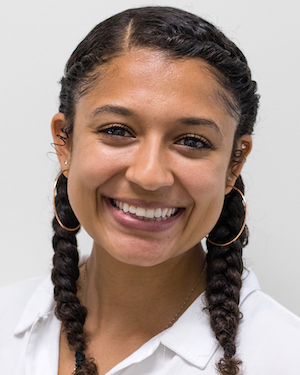
Plan. Period! ⟩
August 29, 2019, by Kat
Life Hacks
The new semester is starting and I already have tons of things on my to-do list. Whats my game plan for the semester? A PLANNER!! During the fall semester I will be in the Adult Rehab immersion, working as a student ambassador for the Chan Division, and trying to balance life with family and friends. Personally, I find that a planner saves my life during a busy season. Writing due dates for assignments, work schedule, and dates with friends helps me keep track of upcoming events and how to prioritize my week. Having a visual aid for me to help support my completion of tasks and responsibilities is something that could also be done with a client to support their engagement in meaningful occupations.
Kickboxing, running, cooking, and hanging out with friends are some of my favorite occupations. With a busy semester ahead, it is important for me to make time for my meaningful occupations in order to stay sane and find a little time for self-care. Finding activities that help you rejuvenate, clear your mind, and that you enjoy are an important part of living a balanced life. I am able to find time for my favorite occupations by planning ahead and using time management skills. By practicing these skills on myself, I am able to refine them so I can implement or adjust them with future clients.
There are many ways to stay organized, such as using Google Calendar, reminders on your phone, sticky notes on your mirror, or old school paper and pen. All in all, be an OT and get creative. Find the method that works best for you! It may also work for a future client!
⋯
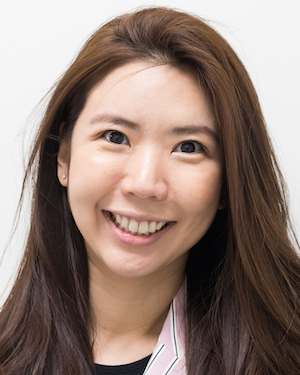
Why I Chose the OTD ⟩
August 29, 2019, by Catherine
Life Hacks What are OS/OT?
For me, returning to school to pursue a second Master’s degree felt like running into a deep and dark tunnel. Despite this, the first time I stepped foot into CHP for an informational session of the program, I had a sense that I was becoming a part of something great. The amazing faculty, robust programs, and sense of community among others, has always made me proud to be a Trojan. I must admit that there were times I would get overwhelmed and second guess whether I would be able to power through to graduation. Then Fall Semester of my second year came. I was hesitant. The idea of staying on for the OTD had always been at the back of my mind from day one. However, I found myself questioning if even know where I wanted to be for my residency. I still had one immersion left. What I needed at that time was to “OT myself”. After taking a step back and allowing myself to breathe, I made a list of the pros and cons of applying for the OTD. I reflected on my initial inspiration of why I wanted to be an OT. Having this visual, and having taken the time to re-connect with my goals, I was able to see that all the amazing qualities of Chan that inspired me to apply for the Masters, stood true of the Doctorate. However this time, I wasn’t running into darkness unarmed. With me were all the tools of an entry-level practitioner. Now that I am beginning my residency, I strongly feel that I made the right choice. I find myself better positioned to expand my knowledge to elevate my future practice with the support of my mentor, Dr. Rebecca Aldrich, and the Chan Division. Moving forward, I am excited to share with you my experience and hope to provide useful insights into OTD.
⋯

Summer Coming to an End ⟩
August 24, 2019, by Anijah
Life Hacks
The time has come for me to say goodbye to a great summer. During my time here at the USC Chan Division, I have learned a lot, met new people, and grown as a person. These last few days have been bittersweet. I have spent these past three months getting to know the amazing faculty and staff who make sure that each program runs smoothly. You can only understand so much about how the programs run when you attend a tour or information session but, working from behind the scenes has allowed me to appreciate the effort USC Chan puts into making sure students enjoy their time while becoming an occupational therapist.
The first time I met an ambassador, I never thought I would have the opportunity to be one. I remember attending an information session and being amazed by the structure of the program while I was a sophomore. Then, on the first day of any occupational science minor classes, one of the first people you will meet is a student ambassador from the Master’s Program. These students describe what occupational therapy is to students who may be taking their very first minor class. At the same time, they are refreshing students’ minds about occupational therapy to returning students. This summer, being an ambassador has allowed me not only to understand the structure of the program better. I have also learned the necessary steps required to take to run events such as the information sessions.
I am sad to be leaving this position, as there are a variety of experiences and memories that I truly enjoyed while working as an ambassador this summer, but I anticipate the future. During this last year of my undergraduate career, I look forward to helping students better understand what occupational therapy is through the Pre-OT Club. I will be applying to a variety of Occupational Therapy Master’s programs, with my eyes on a certain school! I hope my time here has helped many students who are currently applying or trying to get a better idea about what this great health profession is. For now, farewell and Fight On!
⋯

OT Career Fair: Résumé Advice and Preparation ⟩
April 3, 2019, by Jessica P.
Getting Involved Life Hacks
This past Friday, our division hosted our annual OT Career Fair. We had almost 40 organizations come to speak to and recruit our students for jobs in pediatrics, adult physical rehabilitation, mental health, school-based OT, and more! For me, it was a great opportunity to network and see what the job market is like as a new graduate. One of the most helpful parts of the day was getting feedback on my résumé. As an occupational therapy student, my résumé has evolved over the past few years to include to numerous fieldworks and experiences I have had during my time at USC.
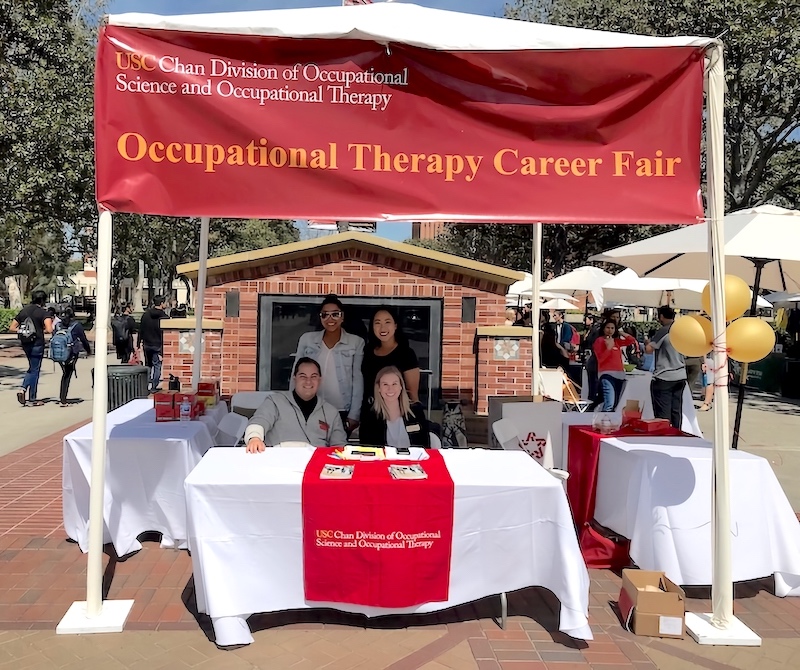
Chan’s Events Coordinator & Student Ambassadors at the 2019 Career Fair
Putting together an OT résumé for the first time from scratch can be a daunting task so here are my tips on creating your best OT résumé.
Key Elements of a Résumé
- Contact Info
- Education
- Honors/awards
- Experience
- Fieldwork
- Professional associations
- Additional information (skills, interests)
When writing a résumé, you can edit it to target the specific position you are applying to. Always include your skills and accomplishments rather than just listing your required work duties. Use action words to describe what you have accomplished.
Presentation of a Résumé
- 1-2 page length
- Single-spaced
- No smaller than 10-point font
- Print on thicker paper
Hopefully if you have a stellar résumé, you are able to secure an interview. One of the most important parts of an interview is preparation.
Interview Preparation
- Research the company: Know the company’s mission and why you want to work there.
- Check social media: Learn what the company is really about.
- Prepare questions for the interviewer: What do you like about working here? How did you get into this line of work? If you weren’t working here where would you be working?
- Practice interviewing skills: Work with someone who can give you feedback. USC offers mock interviews on connectSC which can help you gain confidence in your answers.
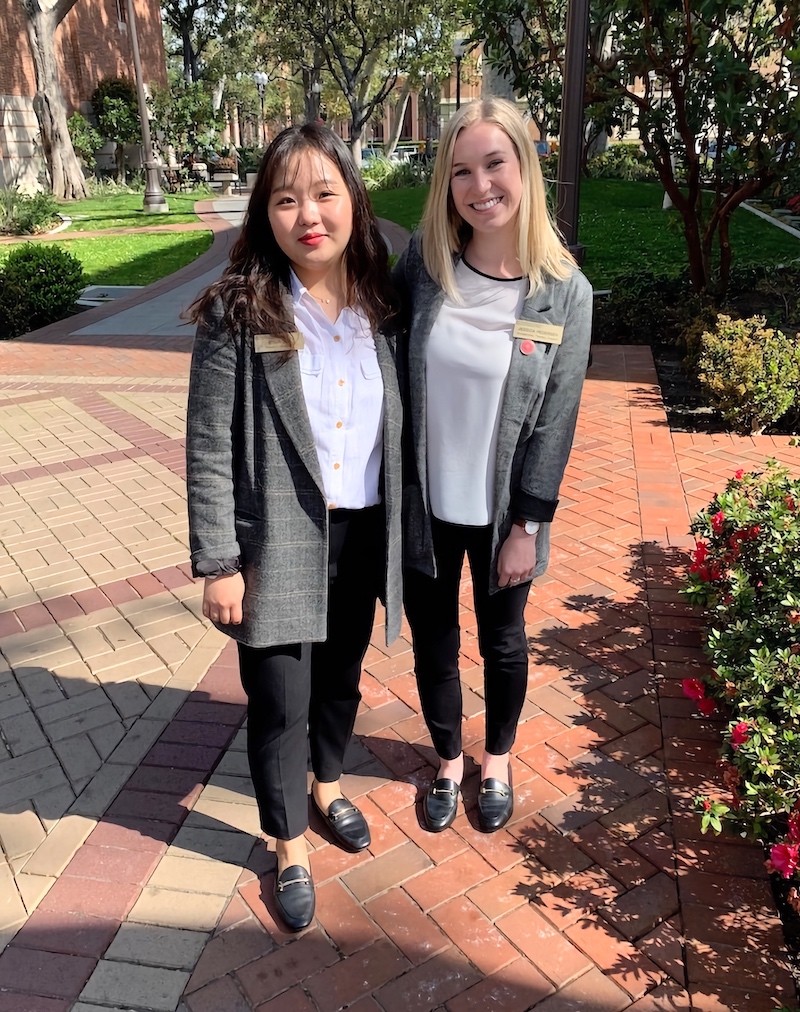
For any interview, remember to always dress your best!
Whether you are a prospective student looking at occupational therapy programs or about to graduate and look for your first job, know that our career outlook is great. According to the Bureau of Labor Statistics, there is a projected 24% growth of OT jobs from 2016-2016. This means that we need more OTs to fill jobs and I know that my classmates and I have been well prepared to be the occupational therapists of the future.
⋯

When you need supports: Ask for Help! ⟩
February 11, 2019, by Goeun
International Life Hacks
Everyone needs support when having a hard time. Especially as international students, it could be harder to find supports since we are far away from home. Before I came here, one concern that I had was where and how to get support as I don’t know anyone here and it was my first time coming to the US. I was worried about my English and I wasn’t confident whether I could do it well or not. However, since I started the Post-Professional Master’s program in the USC Chan Division of Occupational Science and Occupational Therapy, I’ve been supported by so many people and groups in school which I really appreciate.
Here are some resources where you can get help and supports when you need as an international student in the USC Chan Division of Occupational Science and Occupational Therapy.
1. Global Initiatives
When I think of supports as an international student, the first thing that came up in my mind is Global Initiatives. As its title represents, the Global Initiatives team supports international students in our Division to adapt to a new country as well as to help us academically. They’ve held Global Corner which we can join and have fun. Also, they have Academic Peer Mentors, International Student Mentorship Program and Study Hall which supports our academics and hear from previous students as well. In terms of Study Hall, Julianne, who is an Entry-Level Master’s student, help us with English when we’re having a hard time doing assignments or studying exams. I think it really helps us and makes us feel that we are being cared for.
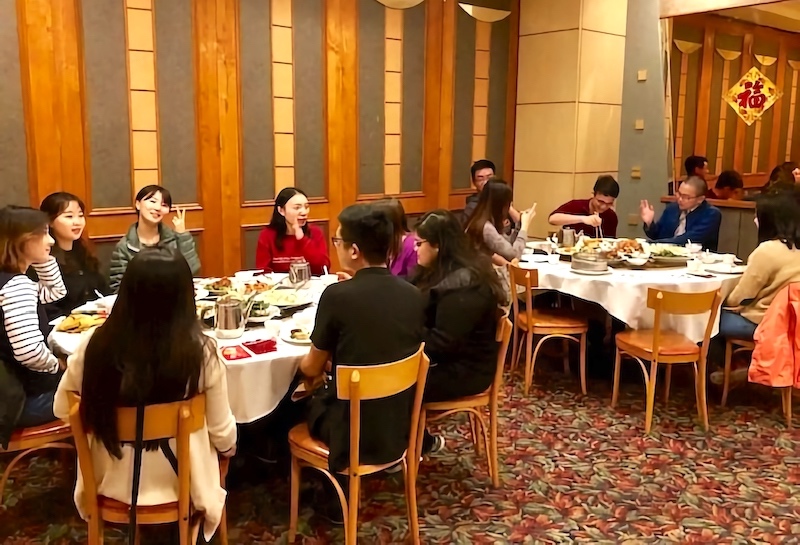
We had dinner to celebrate Lunar New Year altogether.
2. Faculty members
The Chan Division of Occupational Science and Occupational Therapy has more than a hundred faculty members. You’ll not have a chance to meet all of them, but during your program, you can get a lot of support from the faculty members. They help us not only academically, but also with other things. Dr. Blanche and Dr. Ochi, who are the program directors of the Post-Professional Master’s program, have been supporting in so many ways. We were invited to Dr. Blanche’s house for BBQ party in the first month of the program and Dr. Blanche and Dr. Ochi have been asking how have we been doing all the time. Also, Dr. Cermak, who was a professor from our program in the Fall semester, was supportive not only during the class but during the whole semester. I was surprised by how supportive they are and their willingness to help us. Also, when you have interests in some specific part, I’m sure that you can find experts and ask for advice in the Division.
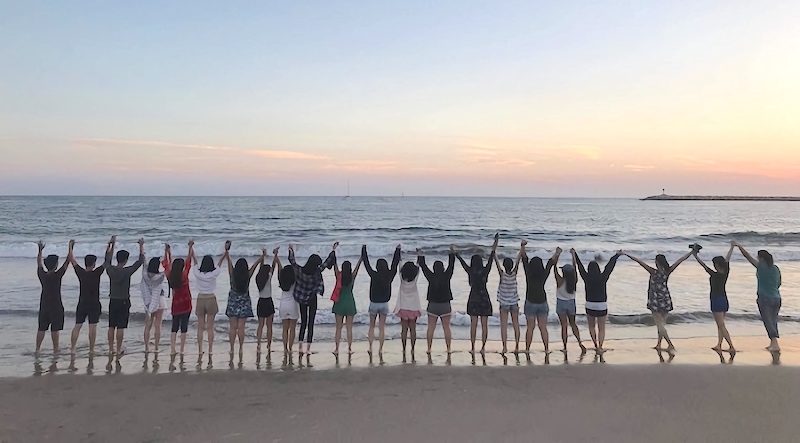
This is a picture from last semester when we went to Dr. Blanche’s house for BBQ Party.
3. Classmates
When you’re struggling with something, you may think that you’re the only person who has the problem. However, since all of your classmates from the Post-Professional Master’s program are mostly international students, they could have the same or similar problems that you have or you have been through. I was really nervous before I start the program, but once I met them in the orientation day, I could feel much better as all of my classmates were so kind and supportive. We had some group works in the Fall semester, and all of us were cooperative, helping each other. We also meet sometimes, hang out together. You can also learn so many things from different cultures to their clinical experiences as an occupational therapist in their countries. It has been really nice having them as my classmates and I’m sure if you come and start the program, your classmates will be too.
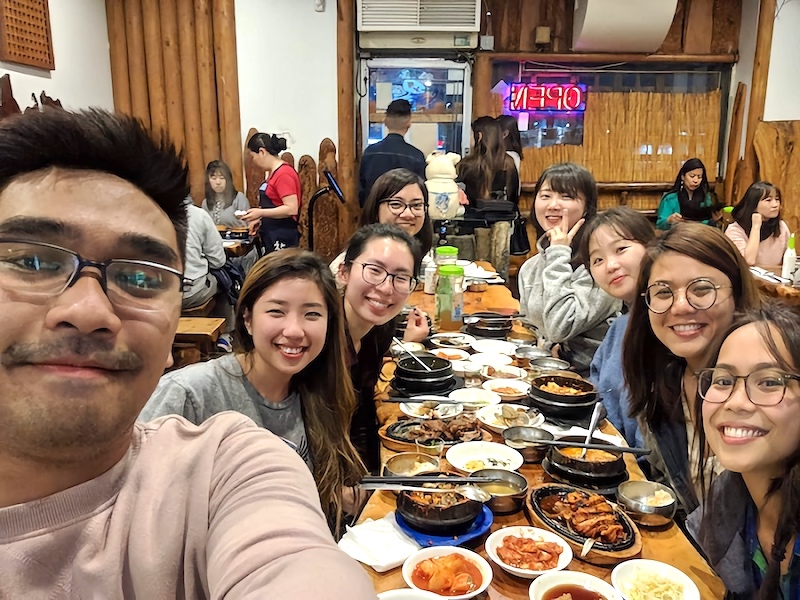
We went to Koreatown for dinner together.
4. Office of International Services (OIS)
OIS is one other support that you’ll need during your study in the U.S. Some things that you need to complete when you first come such as passport verification is done by OIS. Also, while studying, when you travel out of the States, you need OIS for a travel signature. When you’re about to graduate, you’ll need help to apply for OPT visa. Like I mentioned, OIS help us process our visa and stuff, and they have some events too like International Coffee Hour, Movie Night, and Intellectual Writing Session. You can also find some useful information on the website from broadly studying abroad to living in LA specifically.
I really appreciate their help and supports. This is one reason why I chose USC and I think it would have been more difficult studying and living in another country. Lastly, I’m also thankful for the Student Ambassadors and Admission Team since they’ve been supporting me adjust to this position.
⋯





